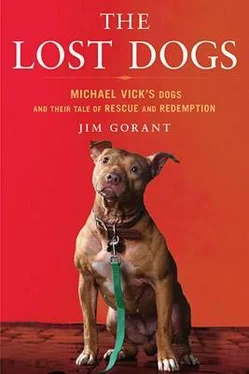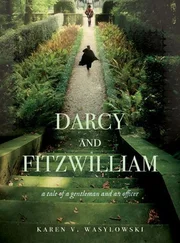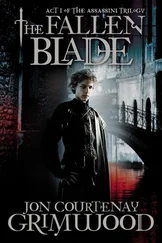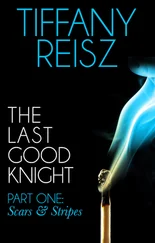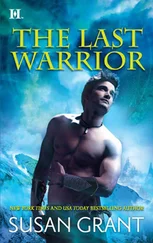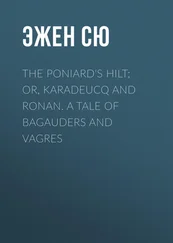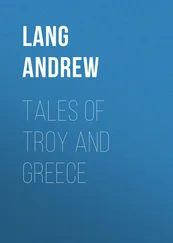They weren’t perfect witnesses; they were convicted felons, for one, and therefore not totally trustworthy, and they were also receiving a reduction in their sentence for agreeing to talk, which gave them a reason to say what the officers wanted to hear. Still, the case wasn’t being built around them. They were just one small link in a growing chain of evidence that was attached to one seemingly inevitable reality: Michael Vick was a dogfighter. He paid for it, he bet on it, he participated in the training, fighting, and killing of dogs with his own two hands.

The next week passed Jim Knorr in a blur. He spent the first few days on the phone arranging his search team. He wrote up reports of the prison interviews. He brought Brownie up to Richmond for a sit-down with Mike Gill. Finally, on June 6 he spent the entire day writing the affidavit for the warrant. He e-mailed it to Gill late that night and the two made arrangements to meet at Gill’s office at 6:30 A.M. to finalize the document.
Knorr rose at 4:30 A.M. on June 7, a clear, bright morning that promised to get hot and sticky. In Richmond, he and Gill went over the wording of the affidavit, making a few changes until they were satisfied that it was perfect. At 11:00 A.M. they walked it down the street to the district court, where U.S. Magistrate Judge Dennis Dohnal signed the warrant. By 1:00 P.M. Knorr was back in the parking lot of the Hog Island boat launch. He was once again strapping into his bulletproof vest and gearing up to execute a search of 1915 Moonlight Road. This time it would be different.
With him now were four other USDA agents and a contingent of Virginia State Police, including a SWAT team and an evidence recovery team. They were going after the bodies. Once again they had no plan for what they would do with the remains once they unearthed them, but right now, with the clock ticking, the whole world watching, and the pressure mounting, it seemed more important to confirm that they existed.
By this time, Knorr had come to dislike Gerald Poindexter. About the third time they’d met, Poindexter went off on one of his diatribes and Knorr snapped back. Since then, Poindexter had been more deferential, but not much. Knorr was not looking forward to the upcoming conversation, but at about 1:45 P.M., he pulled out his cell phone and dialed Poindexter’s number. When the commonwealth attorney answered, Knorr said, “I wanted to let you know I’m about to serve a federal warrant on 1915 Moonlight Road.”
According to Knorr, Poindexter responded with a stream of rhetoric filled with righteous indignation and a heavy dose of motherfuckers. The rest of the conversation, as Knorr recalls:
“What are you searching for?” Poindexter asked.
“The same things that were in the state warrant you forbid Deputy Brinkman from executing,” Knorr said.
“Who are the recovery experts?”
“VSP Evidence Response Team.”
“Is Brinkman part of the team?”
“No,” said Knorr, “I couldn’t get Bill on his cell phone this morning.”
“If you had, would you have wanted him to be there?”
Knorr responded yes. “Who authorized you?” Poindexter asked.
“The U.S. attorney’s office for the Eastern District of Virginia.”
“Who’s in charge of that office?”
“ U.S. Attorney Chuck Rosenberg.”
“Is Mr. Rosenberg a football fan?” Poindexter asked.
“I don’t know.”
“It’s disrespectful,” Poindexter protested. “You don’t have the right to come into my county and execute a search without even letting me or the sheriff know.”
“The USDA and U.S. attorney’s office don’t notify people before they conduct a search,” Knorr answered. “And as long as your county is in the United States, I absolutely do have the right.”
“Does Larry Woodward know about it?” Poindexter inquired, referring to Vick’s lawyer. Knorr said that Woodward did not know.
“Does Gonzales know about it?” he asked, referring to U.S. Attorney General Alberto Gonzales.
“Tony Gonzalez?” Knorr responded, throwing out the name of the Pro Bowl tight end for the Kansas City Chiefs.
“What are you gonna charge him with?” Poindexter said.
“Animal cruelty.”
“Does Bush know about it?” Poindexter asked, meaning President George W. Bush.
“Reggie Bush?” Knorr offered, this time bringing up the New Orleans Saints running back.
“This doesn’t prevent me from going forward with my case,” Poindexter said. Then he added, “So how many years do you want to give this boy?” He paused. “Thirty years? No, maybe thirty-five years?”
“I’m not a judge or a prosecutor,” Knorr responded. “I’m just an investigator attempting to obtain the facts.”
There was some more perfunctory conversation about Bill Brinkman before the commonwealth attorney said, “I guess I should thank you for calling me.”
After he did, Knorr hung up the phone, got in the car, and began the drive to Moonlight Road.

They could not find the dogs. They had been on the site for half an hour, digging in the spots Brownie had marked on a crude map he’d drawn for Knorr, but they were finding nothing. The vegetation was thick and the ground wet. Brownie had been very specific about where he had dug the holes. If those dogs weren’t where he said they were, the case was just about done.
Knorr got on the phone. He called Brownie and asked for more directions. Still nothing. He called Mike Gill and asked for permission to bring Brownie out to the site. Gill took the request to the magistrate judge who had approved the warrant, and the judge gave the okay. A short while later the Virginia State Police delivered Brownie to 1915 Moonlight Road, and he pointed out the exact spot where they should dig. Now, Knorr could see how the ground cover was different and the terrain varied from the area around it, but he never would have noticed it without Brownie to show the way.
The forensics team began digging anew. They started with spades, and after they got down a few feet, they moved to smaller trowels. About an inch and a half of rain had fallen in the previous three days, making the ground soggy and heavy. The digging was slow, and even after they’d cleared an area to a depth of about three feet, they found nothing.
Knorr paced. It was a party for the ticks, and Knorr had to continually pick them off his legs and arms as he talked on his cell phone. The heat was staggering: 89 degrees with 88 percent humidity and no breeze. The air felt heavier than the dirt, but the officers kept at it. Finally, there in the dank and crumbling soil was the unmistakable brush of fur.
Now the process slowed to a crawl. The officers moved even more deliberately so as not to damage the bodies, excavating around them with their hands. Knorr’s stomach turned. He stared at the sky as he walked through ferns and scrub. He saw the squirrels scampering through the trees, smelled the loam of the earth and felt the stillness and the heat. He checked back on the dig site. The bodies had begun to emerge, and with them arose a stench that turned Knorr back. It was the worst thing he’d ever smelled, a combination of rotting meat and an old blanket that had been left festering in a steamy basement.
He found other ways to stay busy. About two hours into the search Vick’s attorney, Larry Woodward, showed up requesting a copy of the warrant. Knorr was happy to oblige, and as he turned over the paperwork he asked Woodward how he had found out about the search. Woodward chuckled. “Someone in Surry County called me,” he said.
Otherwise, the day’s objectives included another look around all the buildings. In the big shed they recovered a few pieces of stained wood from the fighting pit. They picked up spent shell casings around the yard and more medical supplies and syringes. Brownie had said that the crew usually wore coveralls to kill the dogs because they didn’t want to get their clothes dirty, and in the garage Knorr and company found two pairs, splattered with what appeared to be blood.
Читать дальше
